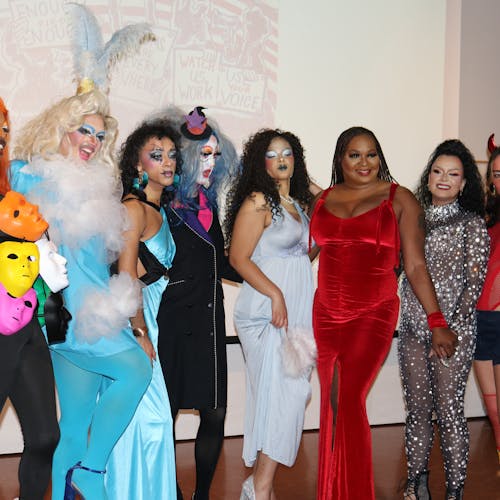Rutgers history: Get to know your school

When you’re thinking about your university, chances are the last thing that comes to mind is its history. More likely, you’re thinking about its sports teams, academic programs and its overall campus culture. But to really get to know the school you’ll one day be calling your alma mater, you’ve got to learn about how it even came to be. So let us take you on a virtual tour of Rutgers through the years!
Before it came to be known as “Rutgers,” the University was first called Queen's College. It was founded by Dutch colonists who received the charter from New Jersey’s Royal Governor on Nov. 10, 1766. The Dutch created Queen's College to train ministers for the Dutch Reformed Church, which also resulted in driving away the Lenape community that originally occupied the land. (New Brunswick was actually chosen as the site of the school over Hackensack by just one vote.)
Like all institutions that were born in the colonial era, Rutgers’ foundation is tied to the exploitation of enslaved people — as said by Deborah Gray White, Board of Governors distinguished professor of history at Rutgers—New Brunswick and chair of the Committee on Enslaved and Disenfranchised Populations in Rutgers History, Rutgers “depended on the sale of Black people to fund its very existence.”
In fact, many of Rutgers’ “founding fathers,” so to speak, were slave owners or slave traders: Philip Livingston, Henry Rutgers, Frederick Frelinghuysen and Jacob Hardenbergh, whose names you might recognize from academic buildings, residence halls or even the name of Rutgers itself, were all either slave owners or slave traders. Hardenbergh’s family enslaved Sojourner Truth, the famous woman abolitionist who campaigned for freedom, and her parents.
During the years of the Revolutionary War, the College had to hold classes in private homes to avoid harassment from the British. Despite being a school for ministers, the first classes of Rutgers were actually held at a tavern, called the Sign of the Red Lion.
As Rutgers slowly grew, students became more and more active on campus as well. In 1869, the school paper was launched under the name “Targum”! (Fun fact: “targum” back then was slang for “cheat sheet.”) The school adopted scarlet as the official color, and Rutgers and Princeton University faced off in the first-ever game of intercollegiate football, making Rutgers the official birthplace of college football. The site of that game is now home to the College Avenue Gymnasium.
In 1915, Paul Robeson became the third Black student to graduate from Rutgers College. Arguably the most notable graduate of our University, during his college career Robeson became a two-time All-American in football, earned multiple other accolades in basketball, baseball and track, received numerous literary awards and more. After graduating, he was known for being a highly-esteemed singer, actor, activist and lawyer.
In 1918, under the leadership of Dean Mabel Smith Douglass, Rutgers trustees were finally convinced to open a school for women (despite the limitations of the law at the time). It was first named The New Jersey College for Women, and many beloved, ongoing Douglass traditions like the Red Pine Ambassadors program, Campus Night, Yule Log and Sacred Path Ceremony were created that year.
In 1924, Rutgers College finally became Rutgers University. Between 1930 and 1939, the first Latina, Black and Asian American women graduated from Douglass College. Several years following, in 1945, Rutgers was declared the official state university of New Jersey.
In 1964, the federal government gave Rutgers the 540 acres of land that served as the Army’s Camp Kilmer. This land would go on to house Livingston College five years later — the first coed, residential, liberal arts college of Rutgers which was created to diversify the student body and establish more departments.
In 1970, Rutgers finally allowed women into Rutgers College. Up until that point, women were only allowed into Douglass College and Livingston College.
In 1979, RU Hungry was established alongside the nine original grease trucks, all of which were owned by Vietnam War veterans. The circle of grease trucks became the birthplace of the legendary “fat sandwiches,” a cultural and dietary staple at Rutgers, and eventually many other universities caught on to the trend. The grease trucks made headlines until they were eventually phased out and officially removed from campus by the University in 2013.
In 2011, several hundred Rutgers students, staff and demonstrators marched across the College Avenue campus to protest the tuition hikes and diminishing financial aid at the time. They also demanded an increase in wages for Rutgers workers whose salaries had been frozen. Protesters chanted outside the University President’s office until then-University President Richard L. McCormick came outside to speak to them, though he said he could not promise a tuition freeze (to which the response was loud booing).
Months later, approximately 20 students staged a sit-in in a hallway and room in Old Queens, the site of McCormick’s office. Students sat into the evening and vowed to remain overnight, attending classes through Skype and receiving notes from classmates. Other students brought the protesters food and snacks during the sit-in.
In 2020, the Food and Drug Administration (FDA) approved Rutgers’ coronavirus disease (COVID-19) saliva test, a new at-home saliva collection kit that gives people a safer way to test for the virus without visiting a hospital and putting more healthcare workers and others at risk of transmission. The kit was developed by Rutgers University Cell and DNA Repository (RUCDR) Infinite Biologics in partnership with Spectrum Solutions and Accurate Diagnostic Labs.
While a vaccine for COVID-19 still hasn’t been approved by the FDA and made available to the public, Rutgers researchers and staff have been engaging with the development of the vaccine. A team of researchers led by a Nir Eyal, director of the Rutgers Center for Population-Level Bioethics, are calling for the use of a study that could shave months off of a COVID-19 virus vaccine timeline, according to Rutgers Today.
Now that you're part of the Rutgers community, that means that you could also one day be remembered as part of Rutgers history, too. So go forth and unleash your bright potential and exciting future, and make your ol' Rutgers on the Banks proud.



